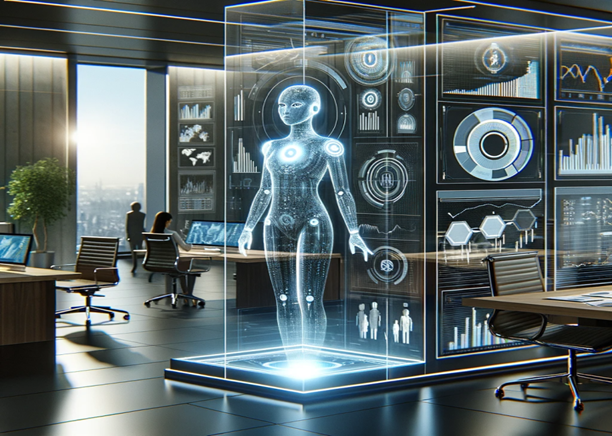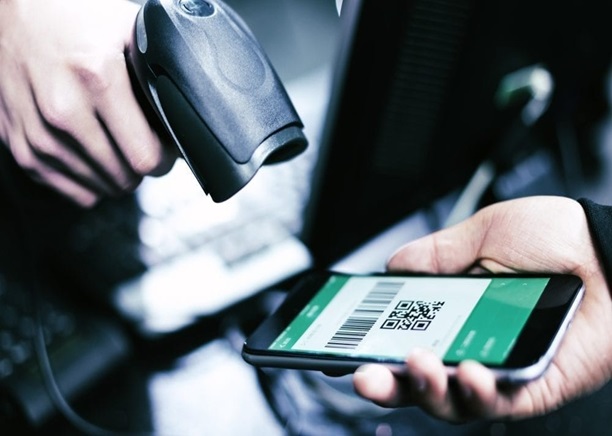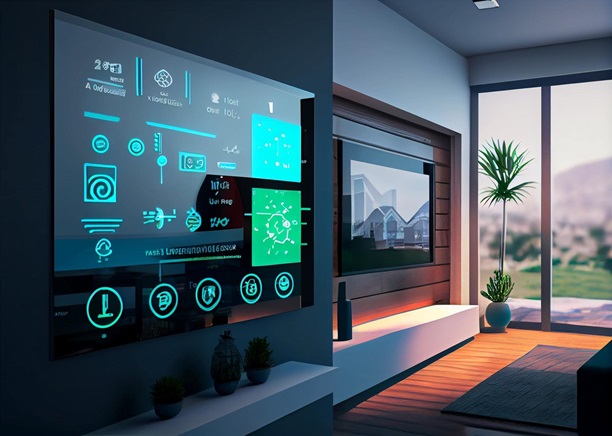-
Call for Anything
+91 9910371785
-
You may send an email
info@nuzninfotech.com
-
Sunday - Closed
Mon - Sat(10.00 AM - 7.00 PM)
From AI to Chatbots: 5 Tech Trends That Are Reshaping Hotel Guest Experience and Distribution
The hospitality industry thrives on delivering exceptional guest experiences and ensuring efficient operations. In today’s digital age, technology is redefining how hotels interact with guests and manage distribution channels. From artificial intelligence to advanced chatbots, these innovations are transforming the way hoteliers operate and how guests experience their stays. Here are five tech trends reshaping hotel guest experience and distribution.
1. Artificial Intelligence for Hyper-Personalization
Artificial intelligence (AI) is a game-changer in hotel reservation software, enabling hyper-personalized guest experiences. By analyzing data from previous stays, booking habits, and even social media activity, AI-powered systems can anticipate guest preferences and deliver tailored services. On the distribution side, AI optimizes marketing campaigns and pricing strategies by predicting demand patterns and guest behavior. Whether it’s recommending specific amenities or crafting targeted offers, AI ensures that every interaction feels uniquely customized. Example: An AI system might suggest a package deal that includes spa access for a couple celebrating their anniversary, creating a personalized and memorable experience while boosting revenue by hotel reservation software.

2. Chatbots for 24/7 Guest Support
Chatbots powered by AI are revolutionizing guest communication. These digital assistants provide instant responses to inquiries, handle bookings, and even manage special requests, all while learning from interactions to improve over time.For hotel management software distribution, chatbots streamline the booking process by guiding guests through reservations, checking availability, and processing payments—all without the need for human intervention. Their ability to provide consistent, round-the-clock service enhances guest satisfaction and ensures no query goes unanswered. Example: A guest planning a last-minute stay can use a chatbot to find a room, confirm availability, and complete the booking—all within minutes.

3. Contactless Technology for a Seamless Stay
Contactless solutions have become a hallmark of the modern hospitality experience. From mobile check-ins to keyless room access and app-based payments, these technologies enhance convenience while minimizing physical interactions by online hotel booking management software. Contactless systems also extend to distribution, where guests can book directly via apps or websites and manage every aspect of their stay digitally. These innovations align with guests’ preferences for quick, efficient, and self-service options. Example: A guest can use their smartphone to check in, access their room, and order room service, eliminating the need for traditional touchpoints like front desk queues by hotel management software.

4. Dynamic Pricing with Machine Learning
Dynamic pricing powered by machine learning is revolutionizing how hotel booking management software manage revenue and distribution. By analyzing real-time data such as market demand, competitor rates, and seasonal trends, machine learning algorithms recommend optimal pricing strategies. This approach ensures that online hotel booking management software remain competitive while maximizing revenue and offering guests fair, market-driven prices. Dynamic pricing systems automatically adjust rates across all booking channels, ensuring consistency and accuracy. Example: During a major event in the city, a hotel’s dynamic pricing system might increase room rates in response to heightened demand, while still offering competitive pricing to attract bookings.

5. Voice-Activated and IoT-Enhanced Guest Rooms
The Internet of Things (IoT) and voice-activated technology are redefining in-room experiences. IoT-enabled smart rooms allow guests to control lighting, temperature, and entertainment systems through their smartphones or voice commands. Voice assistants, such as Alexa or Google Assistant, add another layer of convenience by handling guest requests like ordering room service or setting wake-up calls through the hotel booking management software. These technologies not only enhance comfort but also provide valuable data for personalizing future stays. Example: A guest might use voice commands to dim the lights, play relaxing music, and order a coffee, creating a seamless and enjoyable in-room experience.

As technology continues to evolve, the hospitality industry is embracing innovations that enhance both guest satisfaction and operational efficiency. From AI-driven personalization to the convenience of chatbots, contactless solutions, dynamic pricing, and smart rooms, these trends are reshaping the way hotels operate and interact with their guests for making the best hotel management software in India. Hoteliers who adopt these technologies are not just meeting modern expectations but setting a new standard for the guest experience. In a world where every detail matters, leveraging these tools ensures that guests enjoy seamless, memorable, and personalized stays—while distribution strategies become more efficient and effective than ever before.
More Searches
Top restaurant management software companies
Restaurant management software
top 10 software companies in india
Best Billing Software In India
